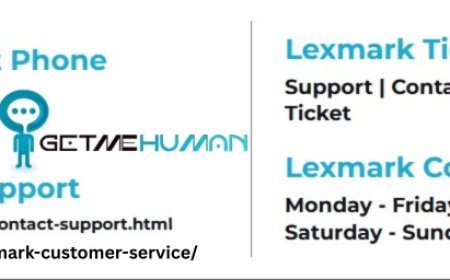Understanding Anxiety: Common Myths and How to Support Loved Ones
Anxiety is more than just feeling nervousits a mental health condition that affects millions, yet its often misunderstood. Whether its a racing heart before a big presentation or constant worry that wont quit, anxiety can be debilitating. Unfortunately, myths about anxiety can make it harder for those struggling to seek help or feel understood. By debunking these myths and learning how to support loved ones, we can foster compassion and connection. Heres a look at common misconceptions and practical ways to be there for someone with anxiety, backed by science and empathy.
Myth 1: Anxiety Is Just Stress
Anxiety and stress arent the same. Stress is a response to external pressures, like a tight deadline, and often fades when the situation resolves. Anxiety, however, can persist without a clear trigger. The American Psychological Association notes that anxiety disorders involve excessive, prolonged worry that disrupts daily life. If a loved one seems anxious even in calm moments, dont dismiss it as just stress. Instead, ask gently, How are you feeling right now? This opens the door to understanding their experience without judgment.
Myth 2: You Can Just Snap Out of It
Telling someone to calm down or stop worrying assumes anxiety is a choice. Research from the National Institute of Mental Health shows that anxiety disorders often involve brain chemistry imbalances, like serotonin or cortisol dysregulation. Its not about willpower. To support someone, validate their feelings: I can see this is really tough for you. Then, offer to do a grounding exercise together, like deep breathing for 2 minutes, to help them feel safe.
Myth 3: Anxiety Always Looks Obvious
Not everyone with anxiety has visible panic attacks. Some experience high-functioning anxiety, appearing productive while battling internal turmoil. A Journal of Anxiety Disorders study highlights that many hide their symptoms to avoid stigma. If a loved one seems unusually quiet or perfectionistic, check in privately: Ive noticed you seem a bit offwant to talk? This shows youre paying attention without assuming.
Myth 4: Anxiety Is Rare
Anxiety disorders are among the most common mental health conditions, affecting nearly 1 in 5 adults annually, per the Anxiety and Depression Association of America. Its not a niche issueits likely someone you know is struggling. Normalize conversations about mental health by sharing resources, like apps on ReliefBuddy.com, which offer guided tools for managing anxiety. This reduces stigma and encourages openness.
How to Support Loved Ones with Anxiety
Supporting someone with anxiety doesnt require expertisejust patience and presence. Here are five practical ways to help, each taking just a few minutes:
-
Listen Without Fixing: Spend 5 minutes listening actively. Avoid offering solutions unless asked. Say, Im here for youwhat do you need right now? This empowers them to share on their terms.
-
Learn Their Triggers: Ask gently, What tends to make your anxiety spike? Knowing their triggers (e.g., crowds or deadlines) helps you suggest small adjustments, like leaving an event early.
-
Practice Grounding Together: Try a 2-minute grounding technique, like the 5-4-3-2-1 method (name 5 things you see, 4 you feel, etc.). Research in Cognitive Behavioral Therapy shows this reduces acute anxiety.
-
Encourage Professional Support: Suggest resources like therapy or apps without pushing. Say, Have you tried something like Relief Buddys tools? They might help. This respects their autonomy.
-
Check In Regularly: A quick text or 2-minute call saying, Just thinking of youhows your day? builds trust and shows you care consistently.
Building a Supportive Environment
Supporting someone with anxiety starts with understanding its a real condition, not a flaw. Share knowledge to dispel mythsmaybe send them this article or discuss it over coffee. Encourage small steps, like trying a mindfulness app or journaling for 5 minutes daily. Most importantly, be patient; progress isnt linear. By showing up with empathy, youre helping them feel seen and supported, which can make all the difference.

























































